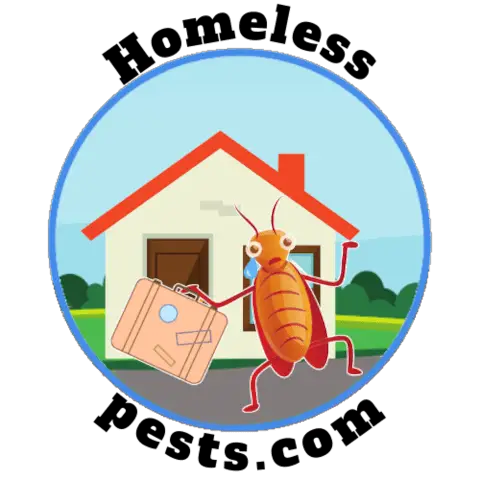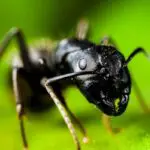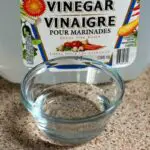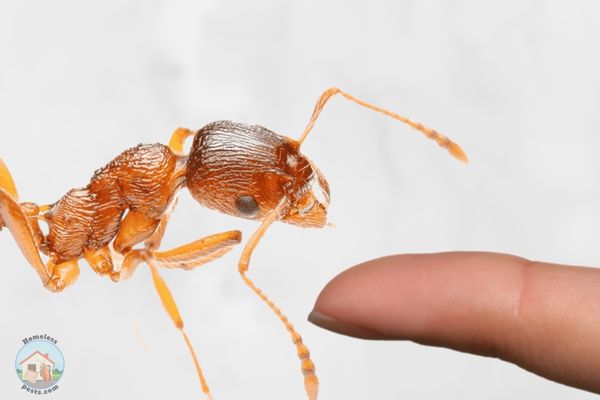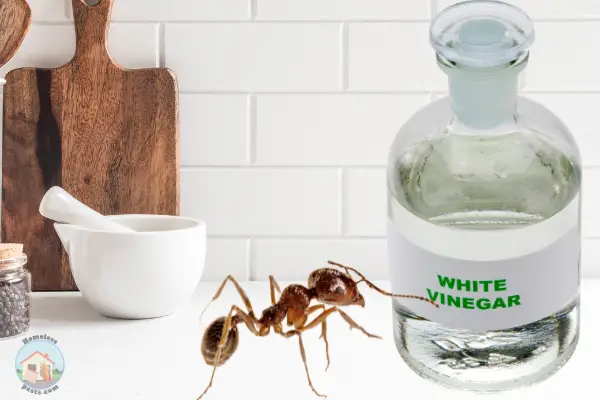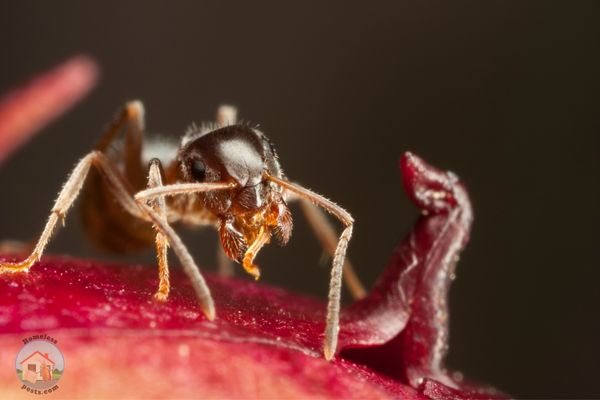One of the worst things in the world is to come home to a kitchen or yard teeming with little black ants.
They seem to come from nowhere and are soon setting up camp in your fortress of solitude. If you act fast, it’s possible to evict them just as quickly and ensure they never darken your door again.
In this article, I will go through everything you need to know about getting rid of little black ants!
How to identify little black ants
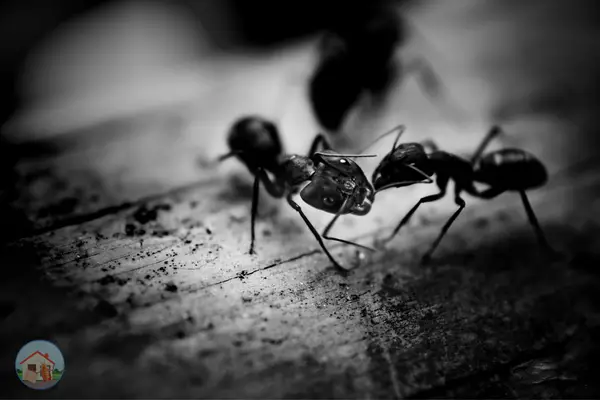
The little black, ant is a prolific ant species native to North America. They are literally everywhere! As their name suggests they’re little and they’re black. And when investing your home or property, they can be annoying. Their colonies can grow up to 2000 workers. while that’s not as numerous as other ant species, little black ant control can still be difficult.
These ants are extremely small, just a 16th of an inch long. And though they’re called “black ants” they can range in color from dark brown to jet black. Although they do have a stinger like many of their fellow ants it’s really not a huge threat to you or your furry friends.
Little black ants can be found throughout the United States, but are densely distributed in different regions, such as parts of California and the east coast.
You’ll find them both in wooded areas as well as in our yards and homes. Nests in the yard can be found in decaying wood along pavement or sidewalk cracks under rocks or in yard debris like logs or bricks.
Inside they can be found in wall voids. Behind decaying wood, behind the masonry, or in kitchens.
Why do I have tiny black ants in my house?
There is usually a simple reason for why you are suddenly seeing individual or teeming lines of black ants in your home, it’s become a perfect habit for ants. Those little black ants are simple creatures and only want three things: food, water, and shelter.
Once they find a food or water source in your home, it’s inevitable that more will return. As these initial foragers return to their nets they leave behind a pheromone trail that alerts other ants of a food source. This is why you’ll often see large swarms of black ants seemingly come from nowhere.
You have two options at this stage. Prevent the little black ants from returning to the nest with their message, or make your home as inhospitable to them as possible.
How do you find a black ant nest?
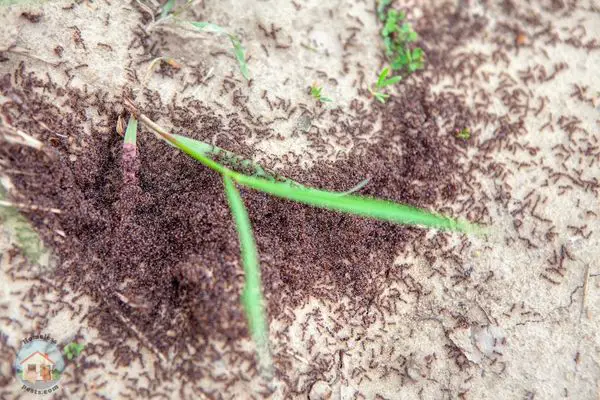
One of the most important steps in getting rid of any ant infestation is to find and destroy the nest. This can be difficult with little black ants because they build their nests in small, hidden spaces.
To start, try to identify where the ant traffic is heaviest. Once you’ve found the general area, look for any cracks or crevices that might provide access into your home. These could be cracks in the foundation, gaps around doors or windows, or openings where utility lines come into your home. By watching for ant foraging trails, these trails will lead you to their nest.
When you aren’t able to find a definite site for the nest, you can target common areas that little black ants might nest around your property. These include areas in the home that are moist or humid, like under the sink or in the bathroom. You can also look for their nest near food sources, like in the kitchen pantry or cupboards.
I would generally advise that you treat as much of your home as possible to make sure that you eliminate each and every possible place that the ants could be nesting, inside and out!
How do I get rid of little black ants in the house?
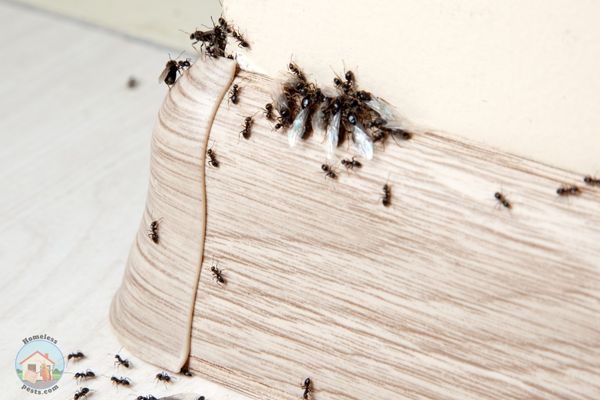
In most cases, little black ants will have built their nest outdoors and then sent their foragers out looking for food. This means that you should aim to treat these ants both outside and inside.
Start outside with a broad treatment solution Bifen IT (Amazon). This is a powerful liquid concentrate that not only is a repellent, but also offers a quick knockdown and a long residual insecticide.
The aim here is to kill any ants which are outside your home and to build a perimeter that will keep any ant that approaches it in the future.
Use this with a hose and sprayer following label instructions. For best results broadcast spray the Bifen IT in your yard for complete coverage. Make sure that you also spray any flower or mulch beds that might be harboring these little black ants and their nests.
Next use D-Fense (Amazon) dust around your home. This is a waterproof insectidal dust that is great for applications to hard-to-reach areas. Using a duster, apply D-Fense dust inside wall voids under appliances, behind electrical fixtures, and into points of entry like weep holes or spigots.
Finally for complete control use an ant gel bait (Amazon). These types of products are made as sweet gel bait that comes in a syringe for easy application and has been tested to be one of the most effective ant baits available.
Apply your bait of choice in locations where ant activity is common, such as kitchens near appliances, near baseboards, and entry points. These baits will attract the ants in your home, which will ingest and coat themselves in the insecticide before returning to their nests. This will soon poison the entire colony right up to the queen.
When baiting, be sure to remove any competing food sources by storing food in airtight containers or picking up pet food. You basically want to ensure that the only food source available to these ants is your bait!
The final step is really the most important, stopping them from ever coming back. You can prevent little black ants from returning by continuing to eliminate food sources in your home. Clean countertops, sweep, and vacuum frequently. Remove water sources by fixing any leaky plumbing. Remove yard debris, trim vegetation back from the house and be sure to spray follow-up applications of Bifen IT every three months for continued protection.
Recommended ant control products

Use this as your first line of defense to bait and kill off ant colonies.
Find the latest deals and prices on Amazon

Liquid insecticides are excellent for building a perimeter around your property and keeping ant colonies in check.
Find the latest deals and prices on Amazon

Stop ants from hiding in walls or cracks by squeezing them out with this insecticide foam.
Find the latest deals and prices on Amazon

Use this gel bait to attract and poison an entire ant colony.
Find the latest deals and prices on Amazon

Use this to flush out ants hiding in walls or cracks.
Find the latest deals and prices on Amazon
Tools for spreading Insecticide outdoors
Battery Powered Sprayer

See the latest deals on Amazon
Broadcast Spreader

See the latest deals on Amazon
Hand Spreader

See the latest deals on Amazon
How do I get rid of little black ants in my kitchen?
In my experience, you are much more likely to see little black ants in your kitchen than any other place (with the exception of the bathroom). This is because it has everything an ant would want: water, food, and warmth.
The first step is to try and identify where they are coming in from. This could be a crack in the foundation, a hole in a window screen, or even under the door. Once you find their point of entry, try to seal it as best as possible. Caulk works great for cracks in the foundation or gaps under doors. For holes in screens, you can use steel wool or replace the screen altogether.
The next step is to remove any potential food sources. This means anything that an ant would find tasty: sugar, honey, crumbs, grease, etc. Wipe down all surfaces (counters, tables, etc.), sweep and mop the floors, and empty out all cupboards and drawers. If possible, put food in airtight containers.
Finally, try to eliminate their water source. This could be a leaky faucet or sink, condensation on pipes, or even pet bowls left out overnight. Fix any leaks and dry up any moisture.
While taking these steps will definitely help, the truth is that little black ants are persistent creatures and can be difficult to get rid of entirely. If you find that your efforts are not having the desired effect, you may need to resort to chemical means.
As I’ve mentioned in this article, there are several insecticides and ant products I recommend. But these alone won’t stop ants from coming back. You need to make a big lifestyle change and make sure that you keep your kitchen clean and keep up to date with your house maintenance. This will go a long way in preventing little black ants (or any other pests) from returning to your home.
How long does it take to get rid of little black ants?
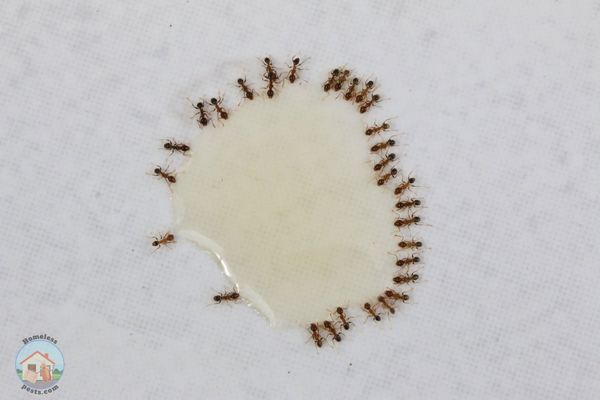
When you take the steps that I have explained in this article, it can take as little as 10 days to kill off an entire ant colony. As black ants normally have a smaller population, this could happen even sooner in their case.
The key thing is to use some form of non-repellent insecticide which will be carried back into the heart of the ant colony. Once there, it will kill off the queen and the rest of the colony will eventually die out.
If you only use insecticides that kill on contact, you won’t see conclusive results as the rest of the colony will remain untouched. It’s even possible that the colony could relocate, which would mean having to find it again.
Does killing ants attract more?
If you kill an ant there is a high possibility that it will attract other ants. However, it really depends on the circumstances of their death and whether or not you leave their body in situ. An ant’s death can be communicated by scent in two distinct ways.
Contrary to the popular myth, simply killing an ant isn’t going to have the whole colony coming to avenge their comrade. But if you kill an ant and leave its body out in the open, this will give off a pheromone scent which will attract other ants.
Ants, although we like to group them together, are very diverse creatures. Different species will react differently to a fellow dead ant, depending on the situation.
When an ant is in mortal danger, it will release a different kind of pheromone known as an alarm pheromone. This is to warn other ants of the impending danger so that they can either flee or prepare to fight.
In these situations, more independent Odontomachus ants would likely have a different reaction to the much more social Dorylus ants. Whereas one ant species might rush to join the battle, others may give the area a wide berth.
The same applies if you step on an ant or otherwise crush it. Its death scent will be released and this will act as a marker for others. In this case, the ants aren’t attracted to the area as a defense mechanism but rather to clean up the dead body.
Like with any animal, death can bring disease and ants naturally want to protect their colony. So by removing the carcass, they are also protecting themselves.
If you want to reduce the risk of attracting more ants, make sure that you remove any dead bodies as soon as possible. The best way to do this is to vacuum them up or flush them down the toilet.
What smell do ants hate?
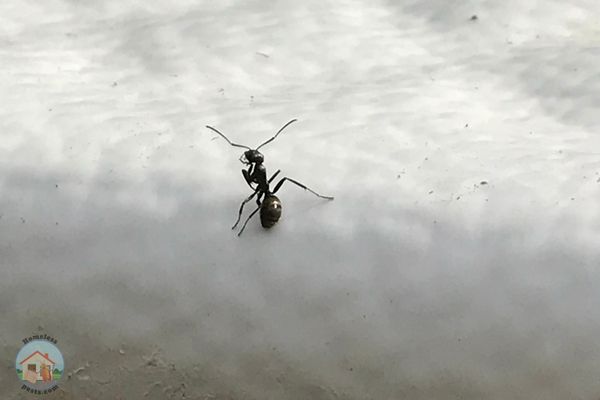
There are several smells that seem to really turn ants off and these can be used to keep them away from your home. Some of the most effective include:
Cinnamon
Coffee grounds
Peppermint oil
Vinegar
Citrus fruit peel
These are just some of the things which you can use to keep ants at bay. For more information, check out my article on natural ant repellents made from vinegar.
Will ants go away on their own?
While it is possible that an ant colony will die off naturally, it’s not likely. If there is food and water available, they will continue to thrive.
The only time that you might see ants disappearing on their own is if they are unable to find a food source or if the area becomes too hot or cold for them to survive. However, this is usually more of a temporary solution as they will simply relocate to a more hospitable area.
What is more likely is that a colony will grow until it fills the available space or capacity for its members. At this point, new novice queens will be produced which will then leave the nest to mate and start their own colonies.
This process, known as budding, is how ant colonies spread. So even if you get rid of the original colony, there is a good chance that more will simply take their place unless you take further action.
The bottom line is that if you want to get rid of ants, you will need to take matters into your own hands. Killing the queen is the best way to go about this but you will need to use a non-repellent insecticide in order to be successful.
If you would prefer to use a natural solution, there are several things which you can try. However, keep in mind that these might not be as effective as traditional methods.
Are little black ants harmful?
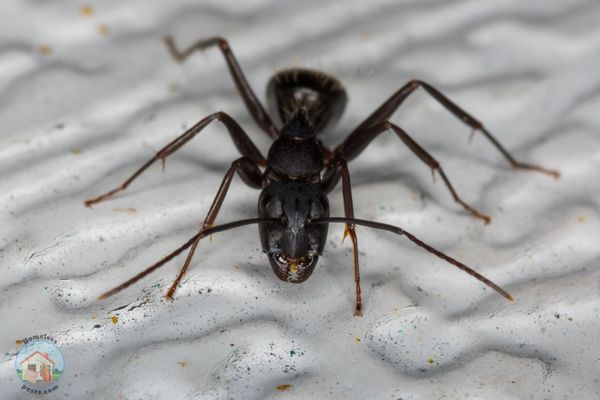
Although an extreme nuisance, little black ants don’t pose a huge physical risk to humans or pets. For one thing, their stingers are too weak to penetrate our skin.
They can, however, give a painful bite if they feel threatened. This is usually in defense of their colony or if they are unable to find food. In some cases, this can even break the skin.
Another thing to keep in mind is that these ants are attracted to sweet things. This means they will try to get into your pantry and this does carry the risk of transmitting diseases.
For example, if an ant walking across your countertop has been in contact with something contaminated, there is a chance it will pick up bacteria and then transfer this to your food.
While the risk is low, it is still something to be aware of. The best way to avoid this is to keep your food stored in airtight containers and to clean up any spills immediately.
You should also try to keep your counters and floors as clean as possible as this will make it less likely for ants to want to come inside in the first place.
Can little black ants damage your home?
Little black ants pose a fairly low risk to your home, however, given time any ant can begin to cause structural damage. If an ant colony is established inside the walls of your home, they can begin to eat away at dry walls or even electrical wires.
While it is true that other ant species such as carpenter ants are more likely to cause extensive damage, it is still something to be aware of. If you begin to see evidence of an infestation, it is best to take action immediately in order to prevent any further damage from occurring.
Conclusion
Little black ants can be small, but they can cause a huge headache. However, you can control them yourself with these professional products and tips.
